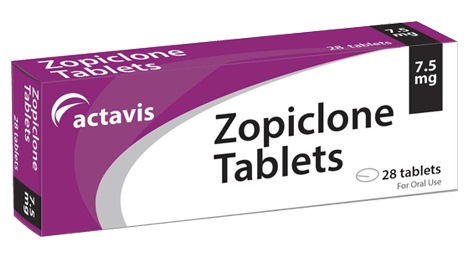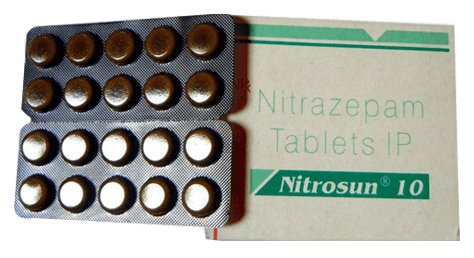
Zopiclone
If you want the medications best for insomnia, check out Zopiclone. We have high-quality medication for you.
Hypersomnia, the condition which results in daytime dozing or drowsiness after sleep, creates a great hindrance when it comes to a person's school and work lifestyle and even in their social life. The most important sources of this sleep disorder in the UK are sleep disordered breathing and nervous system, such as sleep apnoea, narcolepsy, and various other disorders.
Other symptoms of hypersomnia include prolonged sleep with difficulties in waking up in the morning and irritability during the sleepy states and excessive sleepiness all the time. This has the effect that some people feel sleepy even after a reasonable amount of sleep, they even exhibit other symptoms like confusion, memory problem and mood swings.
Many individuals don't know that they are suffering from hypersomnia since tiredness seems normal to them. Sometimes, stimulating or wake-promoting drugs are used for counteracting daytime sleepiness in patients. In this blog, we will share a deep look at what is hypersomnia and everything else you need to know about the condition.
Hypersomnia is also known as excessive daytime sleepiness with difficulty in staying awake for daily activities, even with sufficient night sleeps. It disrupts everyday life, work, and general well-being. Sleepiness comes all day long even after a full rest at night and hampers concentration, memory, and mood even with proper resting hours.
Tiredness is, indeed, an "universal" concept of regular fatigue. It happens normally in most cases and lasts temporarily. When tiredness becomes too much, and seems to hamper your daily routine continuously then that is a case of hypersomnia. These two states vary as follows:
Hypersomnia sometimes resembles other sleep disorders, but the presentations are different.
Primary Hypersomnia: This category is not concerning any other condition with which one might associate. Idiopathic hypersomnia is the most common form, and patients may find themselves excessively sleepy without an apparent reason.
Secondary Hypersomnia: This category occurs as a symptom, symptoms being extremely varied of which these include:
So, we have understood hypersomnia, which is usually misapplied to mean daytime sleep. This creates a need on distinguishing cases like idiopathic hypersomnia separating from hypersomnias of other types of causative factors, such as medical or lifestyle factors.
Different types of hypersomnias can diagnose senomorphic hypersomnia. It has daytime sleepiness, which is completely undetermined. The term idiopathic, therefore, means that nobody knows how it starts- nobody knows what kind of underlying medical condition could have produced the symptoms. It is most frequently diagnosed after the ruling out of other causes.
Management usually entails the use of medications to relieve the daytime sleepiness seen in these patients, such as modafinil and amphetamine-like drugs. Cognitive behavioral therapy schemes and improvements in sleep hygiene have also helped in certain cases.
Hypersomnia arising from some underlying medical condition or a lifestyle factor is generally a more obvious cause and can thus be easily treated or managed by addressing the root cause.
Some medical causes of hypersomnia include:
In cases of hypersomnia arising from medical or lifestyle considerations, treatment is often concentrated on what is behind the hypersomnia. This may include:
The characteristic feature of persistent daytime sleepiness is a compulsion to take a nap or sleep during the day, whether one has had a full night's sleep or not. This feeling of sleepiness and tiredness can occur regardless of how much rest you have had the last night.
You may have one-hour-long naps during the day, and even with sleep, you continue feeling tired when waking up.
There is no particular medical condition for brain fog. Rather, some cognitive processes - a group of symptoms, as it were - get together to form a unified symptom complex that collectively interferes with one's ability to think, focus on important things, and remember anything at all.
Being grumpy refers to the condition of irritability in which a person gets annoyed, get raged, or infuriated because of minor things. The manifestation could be as short tempered or impatience, even leaving a person to feel on edge with those inconsequential events triggering the flare-up.
Individuals with hypersomnia could, in the long run, be affected by mental health disorders such as depression and anxiety. The constant drains of being tired often cause sympathies for the social and professional challenges of dealing with hypersomnia and the intensification of feelings of isolation and hopelessness.
Threats to Safety: Hypersomnia poses a serious threat to safety where alertness is fundamental: driving heavy machinery or working in a health-care environment. Fatigue-based accidents and errors are more prone among these workers.
Reduced Socialization: Hypersomnia makes one disconnect from social activities and move into solitude; one does not associate with one's family and friends due to lethargy or embarrassment from the illness.
Health Consequences: Untreated hypersomnia may give rise to certain health complications such as obesity, hypertension, or heart disease since these factors are predominantly sedentary and involve poor sleeping. Physical inactivity and poor sleep caused by daytime hypersomnia combine to contribute to physiopathology issues.
Poor Sleep Quality: Hypersomnia mean too much daytime sleepiness; however, there may be some restless sleep in nighttime that is worse than before. These low-quality night sleeps may worsen daytime sleepiness and put patients into a vicious cycle of unrefreshing nighttime sleep.
Diagnosing hypersomnia, especially in the UK, includes various methods. Knowing about these methods can help you with proper and timely hypersomnia diagnosis. Here are some common stages or methods of hypersomnia-
These are necessary to understand the underlying causes of excessive sleepiness to inform the management of patients with it.
Managing hypersomnia or excessive daytime sleepiness can indeed be difficult. In the UK, treatment largely comprises several useful methods from medication, behavioural therapy, improvement in sleep hygiene and more. Here are some common treatments available for Hypersomnia -
Concentrating on the underlying cause of the hypersomnia and improving sleep hygiene will give the individual better control over their condition and enhance their quality of life. An overview of the principal treatment approaches currently used for hypersomnia in the UK is given below.
The implementation of natural remedies in treating hypersomnia or excessive daytime sleepiness is possible by taking a holistic route that maximizes overall wellness. In the UK, there is a major shift toward finding natural treatments for hypersomnia so that medication is not the only way to restore healthy sleep and energy levels.
Nutritional support: The Purpose of nutrition within the human body creates an important role to energize, maintain mood, and impact sleep patterns. The kind of foods that you feed your body boosts the potential of your body to fight tiredness. It also enhances the alertness ability in the body.
Exercise routines: Exercise is not only excellent for exhaustion and drowsiness; it has a lot more. Apart from these, it can include energy boosting, mood uplifting, stress relieving, and being better as an overall physical well-being.
Mindfulness and stress management: Chronic emotional strain and psychological fatigue are parts of the hypnogogic mechanisms. Mindfulness and stress-relieving techniques are also useful for the prevention methods in dealing with adverse effects of stress on energy, relaxing and focusing.
Limiting screen time and stimulants: One of the causes of hypersomnia is an excessive amount of screen time at night, with not enough time for sleep. Likewise, an over-dependence on stimulants such as caffeine or energy drink does not match the natural rhythm of the body, which eventually results in energy crashes.

If you want the medications best for insomnia, check out Zopiclone. We have high-quality medication for you.

Are you struggling with insomnia? Here is a great alternative for you. Zolpidem is one medication that you need to treat sleep problems.

Need help to treat sleep disorders? You need the right medication, and Nitrazepam is the best for you. Utilize the tablets for better sleep at night.

When you miss a night's sleep, the problems can be enormous. Eszopiclone ensures that you get a good night sleep as the medication has proven effective for insomnia.
Your email address will not be published. Required fields are marked *